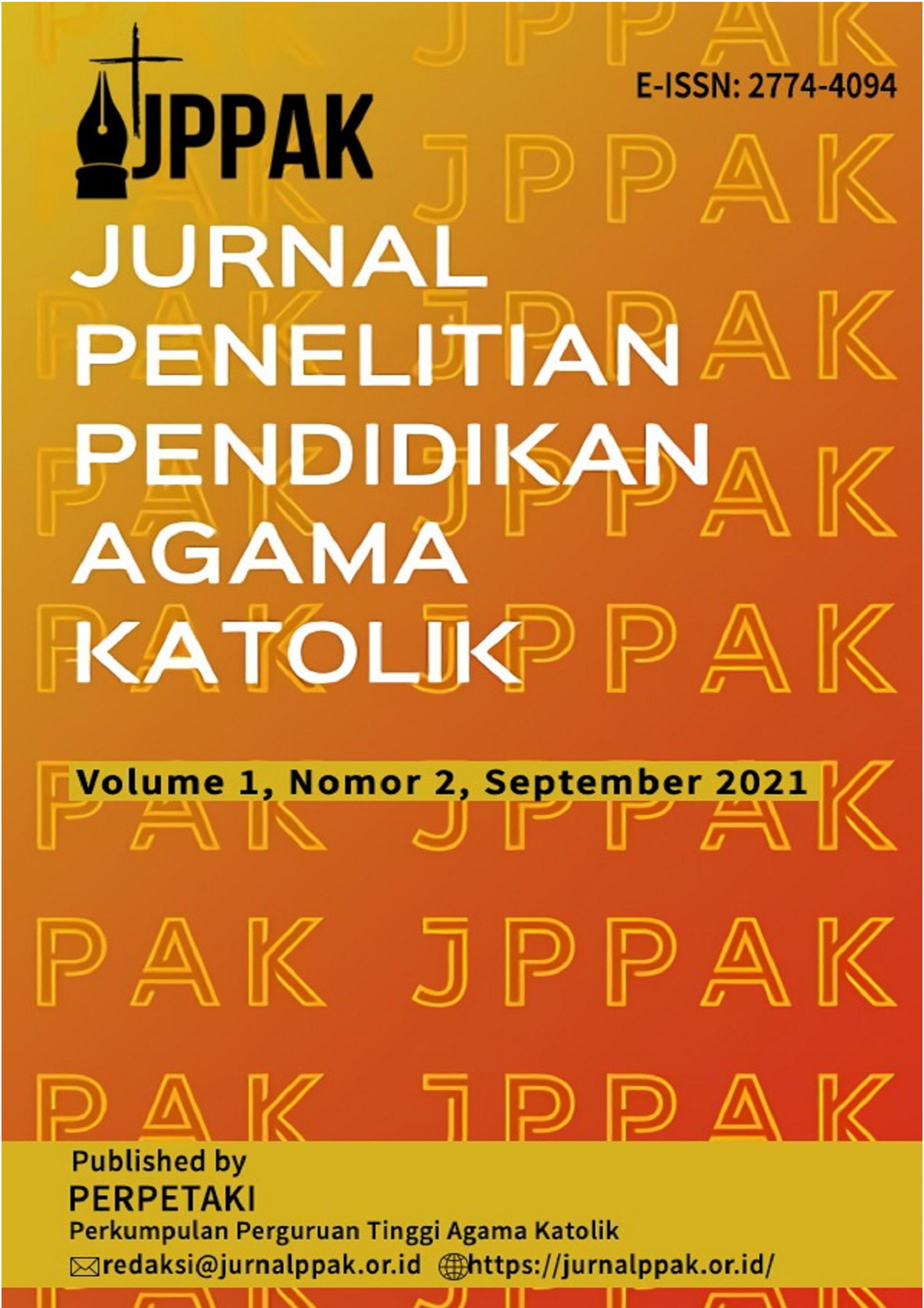Community Development in the Application of Christian Moral Values at SMAK Setia Bakti Ruteng, Manggarai Regency
DOI:
https://doi.org/10.52110/jppak.v2i2.52Keywords:
Community Development, Christian’s Moral ReligiousAbstract
Character building is an accentuation of Indonesian educational project today. The mandate of the Preamble of the 1945 Constitution in the fourth paragraph indicates the goal of education that is to educate the nation's life. The mandate is operationally implemented in the strategic plan of formal education through the “2013 Curriculum” design which emphasizes "improvement of noble character". There are various noble character values that want to be instilled in students. One of the important character values is religious moral value. The main concern of Setia Bhakti Ruteng Senior High School in Manggarai Regency of Nusa Tenggara Timur Province is promoting moral-religious value among its students. In accordance with the spirit of the SSpS Sisters (Servorum Spiritu Sancto) – the owner of the school – Catholic values are the focus educational process. The Catholic values such as cooperation, honesty, responsibility, faith/trust, sacrifice, humility, and love must span the student’s behaviours. The results of the pre-test done showed that three values: cooperation, honesty, and responsibility, are considerable unsatisfactory among the students. Based on the result, an action should be taken by applying an action research method. The method used in this research – based on the method of Kemis and McStagart – consists of pre-action stage, first cycle action and second cycle action. Internalization process of Catholic moral values at each stage uses community development approach. The results of the action show that the community development approach has a positive trend with a score of 62%. This means the community development approach taken can increase 62% of Christian moral values of students at SMAK Setia Bhakti Ruteng.
Downloads
##submission.downloads##
Submitted
Accepted
Published
How to Cite
Issue
Section
License
Copyright (c) 2022 Keristian Dahurandi, Paulus Tolo, Fredrikus Djelahu Maigahoaku

This work is licensed under a Creative Commons Attribution-ShareAlike 4.0 International License.
Copyright Notice and Permissions
Jurnal Penelitian Pendidikan Agama Katolik offers immediate open access to all its content on the principle to make researches freely available to the public, especially to the scholars, to support greater global exchanges of knowledge. This journal encourages all scholarly authors to allow their research openly available, free access and without time restrictions.
All articles published Open Access will be immediately and permanently free for everyone to read and download. Under the CC BY-SA 4.0 license, authors retain ownership of the copyright for their article, however authors grant others permission to use the content of publications in Jurnal Penelitian Pendidikan Agama Katolik (JPPAK) in whole or in part provided that the original work is properly cited. Users (redistributors) of Jurnal Penelitian Pendidikan Agama Katolik (JPPAK) are required to cite the original source by including at least: the full title of the article, the author's or authors' full name(s), JPPAK as the initial source of publication, year of publication and volume number using a propriate citing method.
Copyright encompasses exclusive rights to reproduce and deliver the article in all form and media, including reprints, photographs, microfilms and any other similar reproductions, as well as translations. The reproduction of any part of this journal, its storage in databases and its transmission by any form or media, such as electronic, electrostatic and mechanical copies, photocopies, recordings, magnetic media is prohibited without consent of Jurnal Penelitian Pendidikan Agama Katolik (JPPAK).
Jurnal Penelitian Pendidikan Agama Katolik (JPPAK) is licensed under a Creative Commons Attribution Share-Alike 4.0 International. (CC BY-SA 4.0)
Authors who publish with Jurnal Penelitian Pendidikan Agama Katolik (JPPAK) agree to the following terms:
- Authors retain copyright and grant the journal right of first publication with the work simultaneously licensed under a Creative Commons Attribution Share-Alike 4.0 International (CC BY-SA 4.0) license that allows others to share the work with an acknowledgement of the work's authorship and initial publication in this journal.
- Authors are able to enter into separate, additional contractual arrangements for the non-exclusive distribution of the journal's published version of the work (e.g., post it to an institutional repository or publish it in a book), with an acknowledgement of its initial publication in this journal.
- Authors are permitted and encouraged to post their work online (e.g., in institutional repositories or on their website) after the publication on JPPAK, as long as it not published on other OJS for it will be treated as plagiarism by plagiarism checker apps. It can lead to productive exchanges, as well as earlier and greater citation of published work (See The Effect of Open Access).












